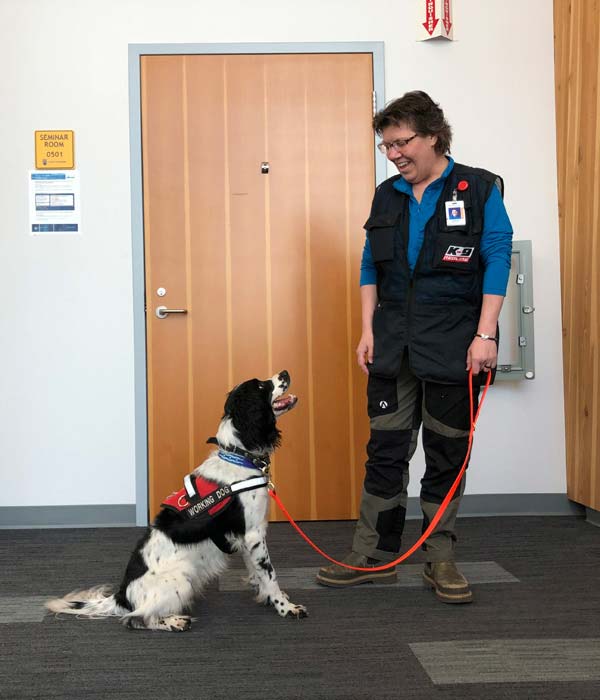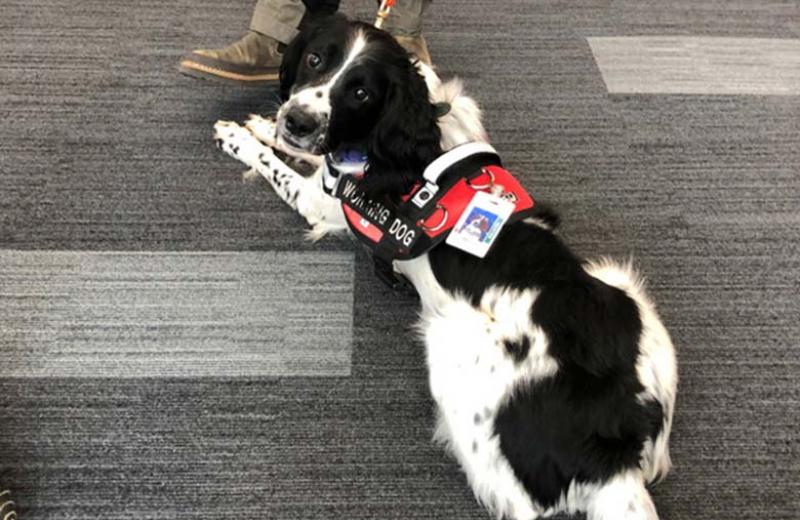UHNBC had a visit from a very special four-legged worker this week. Angus, a four year old English springer spaniel, is a certified Clostridium difficile (C. difficile or C. diff) detection dog who works in the Canine Scent Detection Program at Vancouver Coastal Health.
C. difficile is the most common cause of acute diarrhea in hospitals and long-term care facilities in North America and is an extremely resilient superbug, making it very difficult to eliminate. The challenge lies in knowing where the contamination exists in order to take the necessary steps to keep health care facilities safe – hence where Angus comes in!
“Right now there’s no logistically feasible technology that can do what the dogs can do. We can’t go and do swabs because the cost and the resources involved just makes it not feasible,” says Angus’s handler and owner, Theresa Zurberg. “[The dogs] are quick and they’re accurate. They also open up conversations – they create engagement. They create excitement. [Staff] want to talk about it. Patients ask us questions. It makes it tangible.”

Angus and Theresa paid UHNBC a visit as part of an expansion of the Canine Scent Detection Program to help other health authorities and agencies to better detect C. difficile. Angus has been to several hospitals in the Interior Health region; this year he is visiting UHNBC, as well as hospitals in the Ottawa area.
Besides being able to detect with 97% accuracy, there are other benefits to using the dogs:
“You can put up as many wash your hands posters as you want and people will eventually just ignore them. But when they see the dog work and alert on something, it makes it really tangible and that’s one of our best features of using the dog and using the program as a baseline assessment tool.”
Angus is the first certified C. difficile detection dog in Canada.














Comments